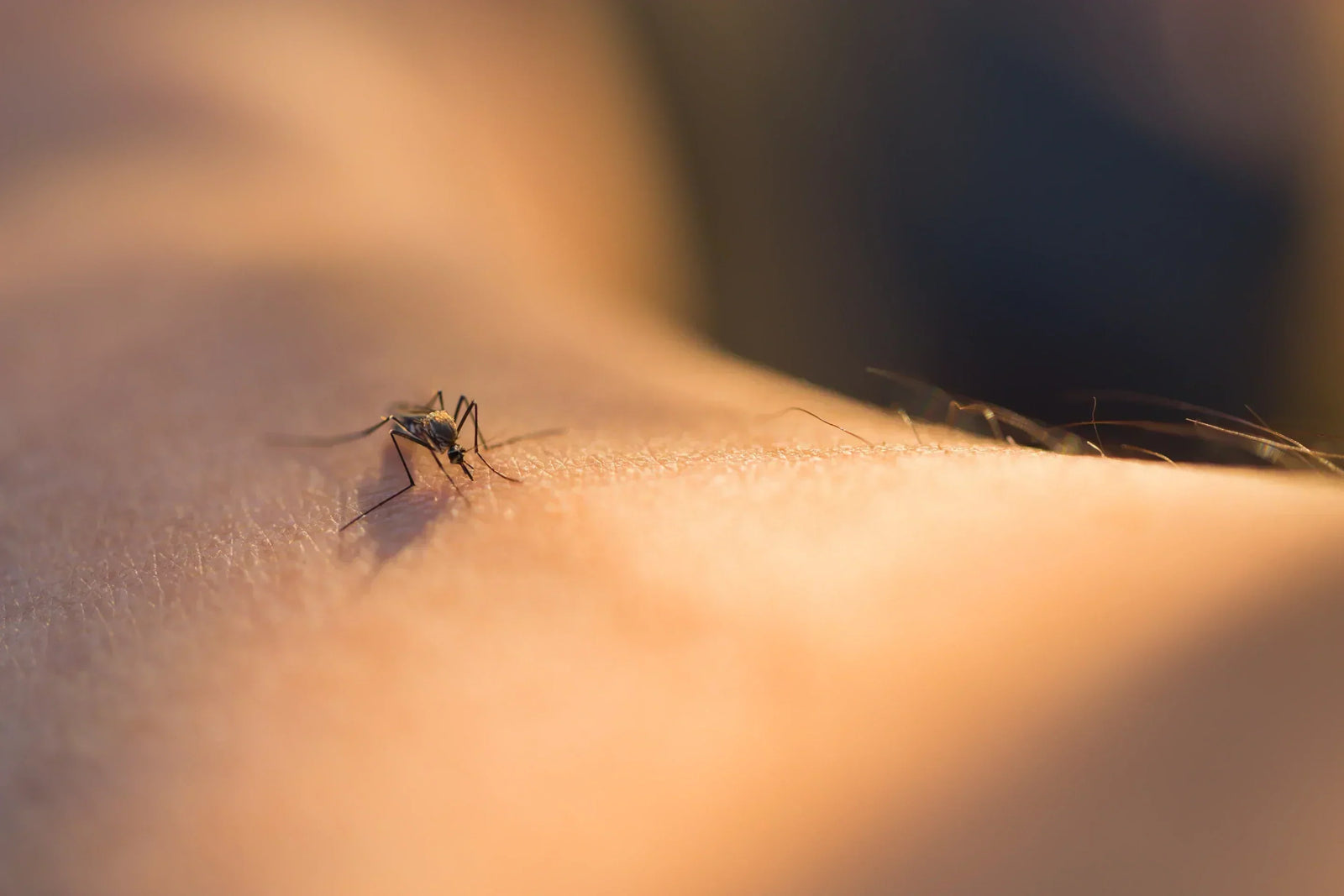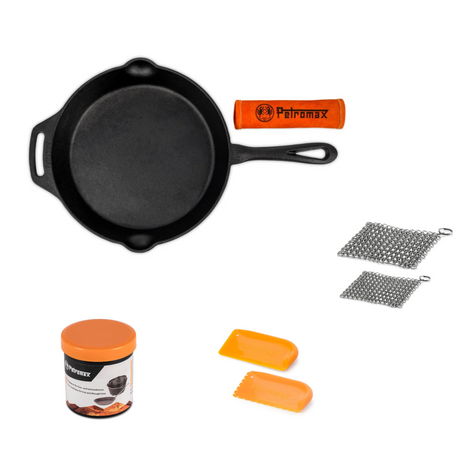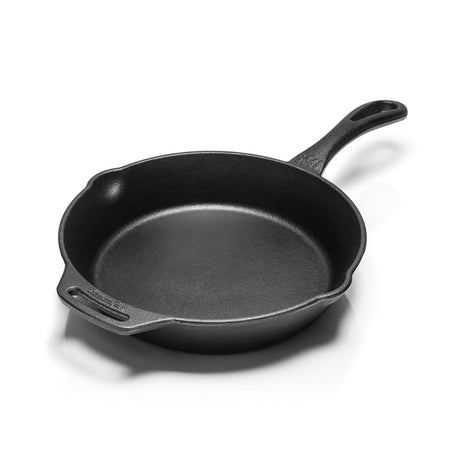You know it well: As soon as it gets warm, those annoying bloodsuckers start buzzing around you again. Mosquitoes can really get on your nerves—especially when they’re humming by your ear at night or attacking you during a cozy barbecue evening. Every summer, millions of people ask themselves the same question: what to do about mosquitoes?
The good news: You don’t have to surrender! There are many effective methods to drive these pesky creatures away. In this comprehensive guide, we’ll show you all the proven strategies against mosquitoes.
Table of Contents
Why are mosquitoes so annoying, and what attracts them?
Which home remedies really help against mosquitoes?
How can you repel mosquitoes indoors?
What helps against mosquitoes in the garden and on the balcony?
What clothing and behavior help prevent mosquito bites?
Which insect sprays and products are truly effective?
What to do after mosquito bites—how to properly treat itchiness?
Summary
Why are mosquitoes so annoying, and what attracts them?
Before we turn to solutions, we should first understand what we're actually dealing with. Mosquitoes become real pests, especially in the warmer months—but why is that? The answer lies in the fascinating, but unfortunately, very annoying, biology of these little bloodsuckers.
The secret of mosquito attacks
Hier kommt eine Überraschung: Nicht alle Mücken stechen! Nur die Mückenweibchen sind diejenigen, die uns das Leben schwer machen. Sie brauchen das Protein aus unserem Blut für die Entwicklung ihrer Eier. Die Männchen sind dagegen völlig harmlos und ernähren sich ausschließlich von Nektar und anderen süßen Pflanzensäften.
Here’s a surprise: not all mosquitoes bite! Only female mosquitoes trouble us—they need the protein from our blood to develop their eggs. Males are harmless and feed only on nectar and sweet plant juices. The females have highly developed sensory organs that can detect their “prey” from several hundred meters away—impressive and terrifying!
What attracts mosquitoes?
Body odor and carbon dioxide are the main attractants for mosquitoes. Every breath you take sends signals to them. The CO₂ you exhale acts like a beacon in the night. Plus, your sweat and skin emissions act like a magnet to these bloodsuckers.
It’s especially interesting how “mosquito attraction” varies between people. Have you noticed some friends get bitten constantly while others remain untouched? This is due to factors like:
- Blood type: people with blood type O get bitten more often
- Body temperature: those who sweat more are more attractive
- Metabolism: your individual body chemistry matters
- Pregnancy: pregnant women are bitten more frequently
- Clothing color: dark clothes attract mosquitoes more
Mosquito myths debunked
Let’s clear up some mosquito myths:
| Myth | Truth | Explanation |
|---|---|---|
| Mosquitoes are attracted to light | ❌ False | Mosquitoes follow CO₂ and body odor |
| Humans with “sweet blood” get bitten more | ❌ False | It’s about body chemistry, not blood sugar |
| Alcohol drinkers get bitten more | ✅ True | Alcohol changes body odor |
| After a harsh winter, there are fewer mosquitoes | ❌ False | Mosquitoes survive cold winters just fine |
| Certain plant scents repel mosquitoes | ✅ Partially true | Some essential oils do work as repellents |
The myth of “sweet blood” persists but isn’t scientifically backed. Mosquitoes can’t taste how sweet your blood is before biting—they’re guided by chemical signals your body emits.
Which home remedies really help against mosquitoes?
Before you reach for chemical repellents, try these proven home remedies. Many essential oils are surprising natural mosquito repellents—they’re natural, skin-friendly, and often pleasantly fragrant!
Essential oils: Natural mosquito deterrents
Lavender is not only relaxing for us humans, but also a very effective natural mosquito repellent. The intense scent of lavender oil is absolutely irresistible to mosquitoes—but in a negative way! You can dilute a few drops of lavender oil with a carrier oil (such as coconut or olive oil) and apply it to your skin. Alternatively, you can place lavender plants near windows, on your patio, or on your balcony.
Basil not only smells delicious and is great for cooking, but it's also very effective at repelling mosquitoes. A pot of fresh basil on the windowsill works wonders. The secret lies in the essential oils of the basil leaves. You can also rub the leaves between your fingers and apply them directly to your skin—this will further enhance the effect.
Eucalyptus is a true classic among home remedies for mosquitoes. You can dilute eucalyptus essential oil with a little water and use it as a natural spray. It's especially practical: You can spray it on your skin or spread it around rooms.
Lemon balm and mint are other natural repellents that you can easily grow yourself. These plants are not only mosquito-repellent, but also very easy to care for. Simply rub the leaves between your fingers and apply them to your skin – or brew them as a tea and spray it around the rest of your garden.
How to use home remedies correctly
- Always mix essential oils with carrier oil—never pure on the skin
- Test on a small patch first
- Reapply every 2–3 hours
- Use aroma diffusers or lamp setups to treat whole rooms
Other proven home remedies
Garlic may not be everyone's cup of tea, but it is actually an effective home remedy for mosquitoes. The strong smell your body emits after eating garlic repels mosquitoes. However, you need to eat garlic regularly and in large quantities for it to work.
Apple cider vinegar can be used both internally and externally. One tablespoon of apple cider vinegar daily is said to change body odor so that mosquitoes are less interested. Externally, you can also use diluted apple cider vinegar as a natural spray.
Coffee grounds are a secret tip for outdoor use. Sprinkle dried coffee grounds in areas where mosquitoes like to hang out. The smell not only repels mosquitoes, but also other insects.
How can you repel mosquitoes indoors?
Mosquitoes in your house are particularly annoying—they ruin your sleep with their nighttime buzzing. But don’t worry—here are the best strategies to repel them indoors.
- Fly screens are absolutely your best friend when it comes to mosquito protection! They are the simplest, most effective, and cheapest way to prevent mosquitoes from entering your home in the first place. Modern fly screens are incredibly easy to install on windows and doors and are almost invisible.
- Fans are a real insider tip! Mosquitoes are pretty bad flyers. In winds of around 2 km/h or more, they already have difficulty flying purposefully and heading for you. A fan therefore serves several purposes.
- Timing is everything when ventilating! Mosquitoes are not equally active 24/7. Most species are particularly active at dusk and in the early evening hours. Here are the optimal ventilation times:
Early morning (5-7 a.m.): Perfect for quick ventilation
During the day:: Keep windows closed, especially in warm weather
Late evening hours (after 10 p.m.): nly with fly screens or for a very short time - Quick ventilation instead of continuous ventilation: It's better to have all windows wide open for 5-10 minutes than to leave them ajar for hours. This brings in more fresh air and gives mosquitoes fewer opportunities to enter.
- Aroma lamps with essential oils can create a natural mosquito repellent throughout your home.
- Eliminate breeding grounds in your home. Many people don't even consider that mosquitoes can also find breeding grounds in their homes. tanding water is their number one enemy!
What helps against mosquitoes in the garden and on the balcony?
In the garden or on the balcony, you have completely different options for keeping mosquitoes away. It's all about clever prevention and proper garden design. With the right strategies, you can transform your outdoor area into a mosquito-free oasis!
Getting rid of standing water is essential! Rain barrels should be covered, flower saucers emptied regularly, and puddles avoided. Even the smallest accumulation of water can become a breeding ground for mosquito larvae.
The right plants can be real mosquito repellent:
| Plant | Effect against mosquitoes | Additional benefits | Care |
|---|---|---|---|
| 🌿 Lavender | Very strong | Relaxing scent, beautiful flowers | Little water, sunny |
| 🌱 Basil | Strong | For cooking | Warm, water regularly |
| 🍃 Lemon balm | Medium-strong | Tea, grows everywhere | Very easy to care for |
| 🌿 Rosemary | Strong | For cooking, hardy | Dry, sunny |
| 🌱 Mint | Medium | Refreshing, tea | Moist, spreads |
| 🌸 Geranium | Medium-strong | Beautiful flowers | Water regularly |
| 🌾 Lemongrass | Very strong | Asian cuisine | Warm, lots of sun |
You can achieve long-term mosquito control by:
- Regularly checking all water sources
- Keeping gutters clean
- Removing damp leaves and other organic materials
- You may also consider placing fish in larger water sources – they eat mosquito larvae
Tip for balconies: Small fans or wind-generating plants can also help keep mosquitoes away.
What clothing and behavior help prevent mosquito bites?
Your clothing choices and behavior can make a huge difference when it comes to mosquito protection! With the right strategies, you can reduce your risk of mosquito bites by up to 80% – without using a single chemical.
- Light-colored clothing is definitely better than dark clothing. Mosquitoes are more attracted to dark colors – probably because they retain more heat.
- Long-sleeved, loose-fitting clothing offers the best protection. The material shouldn't be too thin, as mosquitoes can bite through thin fabrics.
Behavioral tips for mosquito-free evenings:
- Avoid strong perfumes or scented lotions
- Shower before outdoor activities to reduce sweat odor
- Avoid activities at dusk, when mosquitoes are most active
- Get more exercise – people who are stationary are more likely to be bitten
- Apply repellents correctly: When using mosquito repellent, apply it to all exposed skin. Don't forget ankles, wrists, and the back of the neck – these are often overlooked areas.
- Optimize your mosquito protection: Combine different methods for the best protection. A combination of appropriate clothing, repellents, and behavioral adjustments is most effective.
Which insect sprays and products are truly effective?
Sometimes home remedies and natural methods simply aren't enough—especially in extremely mosquito-infested areas, during extended outdoor stays, or if you're sensitive to mosquito bites. That's when chemical insect sprays come into play. But which active ingredients are truly effective? And what should you look for when choosing?
Active ingredient comparison: DEET vs Icaridin
| Feature | DEET | Icaridin |
|---|---|---|
| Effectiveness | Very high (up to 8 h) | Very high (up to 8 h) |
| Protection duration | 6–8 hours | 6–8 hours |
| Skin compatibility | Moderate irritation | Very well tolerated |
| Smell | Strong, pungent | Mild, nearly odorless |
| Suitable for kids | From age 2 (max 10%) | From age 2 |
| Price | Affordable | Slightly more expensive |
| Material compatibility | Can damage plastics | Gentle on materials |
| Tropical suitability | Excellent | Excellent |
DEET (Diethyltoluamid) is considered the gold standard among active ingredients. It is highly effective and offers long-lasting protection. DEET-containing products work for several hours and also protect against other insects.
Icaridin is a newer alternative to DEET. It is more skin-friendly, has a less strong odor, and is just as effective. Icaridin is often the better choice, especially for sensitive skin.
Advantages and disadvantages of chemical repellents:
- ✅ Very high effectiveness
- ✅ Long-lasting protection
- ✅ Protection against various insect species
- ❌ Can cause skin irritation
- ❌ Strong odor (especially DEET)
- ❌ Not suitable for all age groups
Making the right choice:
- Home remedies are often sufficient for short outdoor stays
- For longer outdoor activities, chemical repellents are useful
- In tropical areas, you should definitely rely on proven active ingredients
- Pay attention to the concentration – higher is not always better
What to do after mosquito bites—how to properly treat itchiness?
Despite all precautions, you may still get bitten. Then you need quick and proper help! Unfortunately, most people make common mistakes when treating mosquito bites, which can actually worsen the itching. Here's how to properly treat mosquito bites and when you should be concerned.
Immediate measures for mosquito bites:
- Immediately cool - ice cubes, cold compresses, or a cold spoon
- Do not scratch - increases itching and the risk of infection
- Disinfect - clean the area if necessary
- Observe - check for swelling or redness
For longer outdoor activities, you should always carry a well-stocked hiking first aid kit
Tried-and-tested home remedies for itching:
- Aloe vera gel has a cooling and anti-inflammatory effect
- A paste made from baking soda and water can neutralize itching
- Tea tree oil (diluted!) has antiseptic properties
- Onion juice is an old trick - simply press a cut onion onto the bite
When should you see a doctor? n most cases, mosquito bites are harmless. But caution is advised if you experience:
- Severe swelling or allergic reactions
- Signs of infection (redness, warmth, pus formation)
- Fever after mosquito bites
- If you have been in areas where mosquitoes can transmit diseases
Summary: Your comprehensive battle plan against mosquitoes
Prevention is the best protection: Eliminate standing water and breeding grounds in your area. This prevents mosquito infestations in the first place and is the most sustainable solution.
Natural home remedies work: Essential oils of lavender, basil, and eucalyptus offer effective and skin-friendly mosquito repellent. They are a great alternative to chemical products.
Proper clothing protects: Light-colored, long-sleeved clothing significantly reduces the risk of mosquito bites. Combine this with the right behavior for optimal protection.
Keep indoor spaces mosquito-free: Fly screens, fans, and aroma lamps create a mosquito-free living environment. This way, you can finally sleep peacefully again.
Chemical repellents when needed: DEET and icaridin offer reliable protection in mosquito-dense areas. They are indispensable for extreme situations.
Quick relief for bites: Cooling and appropriate treatment relieve itching and prevent complications. A well-stocked first aid kit is a basic necessity.
Myths debunked: Scientific facts help distinguish effective methods from ineffective home remedies. Don't be misled by old myths.
Holistic approach: Combining different methods provides optimal protection against annoying bloodsuckers. The more strategies you combine, the better your protection.
With these tips, you'll be well prepared for a mosquito-free summer! Try out which methods work best for you and finally enjoy relaxing evenings without the constant buzzing in your ears.







































